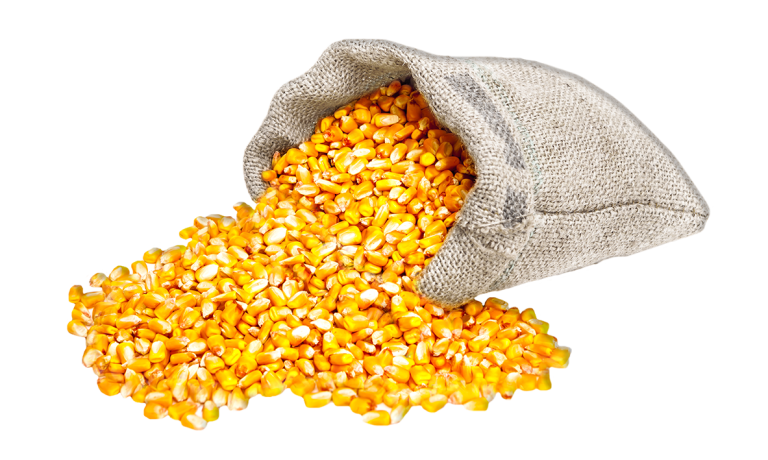Corn in Livestock and Poultry Feed
Corn plays a vital role in livestock and poultry feed. It is one of the most important products used for feeding livestock and poultry. Corn is a significant source of energy for livestock, making it highly popular among farmers. In this section of the article, we will discuss the importance of corn in livestock and poultry feed and its properties.
What Are the Properties of Corn?
Corn is one of the most important grain products in the world, offering numerous nutritional benefits. It is an excellent source of carbohydrates, protein, fiber, vitamins, and minerals such as iron, magnesium, and phosphorus. Additionally, corn contains essential amino acids necessary for poultry nutrition, with high digestibility and absorption capabilities. Due to its adaptability to various climatic conditions, corn can be grown and produced in most regions, making it one of the most prevalent crops in tropical and subtropical areas today. Corn constitutes 20-25% of human nutrition, 70-75% of livestock and poultry feed, and 5% of other by-products, highlighting the significance of producing and purchasing livestock corn.
Differences Between Livestock and Human Corn
Edible corn typically has plump, short kernels that are light beige. When you touch the kernels and press one with a fingernail, you’ll notice that the corn is juicy and milky. This edible product can be cooked at home, with some varieties requiring 30 minutes of cooking and others only 10 minutes. In contrast, livestock and forage corn have meaty kernels covered with a hard shell. When pressed with a fingernail, the kernel wrinkles, and even if the hard shell is cracked, the kernel remains meaty and waterless.
Nutritional Value of Livestock Corn
Compared to other grain seeds, livestock corn has less protein but more energy. It contains 72% starch based on dry matter, which includes fiber, protein, and minerals. The nutritional composition of livestock corn is as follows:
- Starch: 72.2%
- Protein: 10.4%
- Ash: 1.4%
- Phosphorus: 0.33%
- Potassium: 0.33%
- Magnesium: 0.12%
- Calcium: 0.02%
In livestock diets high in corn, a calcium source such as limestone should be added as a supplement to prevent urinary stones.
Applications of Corn in Poultry Feed
Corn is one of the most crucial ingredients in poultry feed production with various applications:
- Primary Energy Source: Corn is used as a primary energy source in poultry diets, providing the necessary calories and carbohydrates for growth and egg production.
- Protein Source: Corn contains a significant amount of protein and serves as an essential plant-based protein source in poultry feed.
- Fiber Source: The fiber in corn aids in improving poultry digestion and reducing digestive issues.
- Vitamin and Mineral Source: Corn contains essential vitamins and minerals necessary for poultry health, helping meet their dietary needs.
- Diversity and Balance in Diet: Including corn in poultry feed formulations can enhance nutritional diversity and balance, promoting better growth and performance.
Overall, corn is utilized as a comprehensive and cost-effective food source in poultry feed production, playing a significant role in meeting nutritional requirements and increasing poultry productivity.
Reasons for Using Corn in Poultry Feed Formulations
Corn is extensively used in poultry feed formulations due to its good nutritional properties and reasonable price. It acts as a primary source of energy, protein, and carbohydrates in poultry diets. Additionally, corn-containing products provide balanced nutrition for poultry. Corn can be a main component in various feed mixes, such as those for broiler and layer poultry.
- Energy Supply: Corn is a rich energy source used in poultry feed production. Its significant carbohydrate content effectively meets poultry energy needs.
- Protein: Besides energy, corn also provides a substantial amount of protein. Combining corn with other protein sources like soy can produce a balanced protein feed meeting poultry nutritional requirements.
- Fiber: Corn contains a significant amount of fiber that can improve poultry digestive performance. The fiber helps prevent digestive problems like diarrhea and poor bowel function.
- Vitamins and Minerals: Corn is rich in vitamins and minerals essential for healthy and robust poultry growth. B vitamins, vitamin E, iron, magnesium, and potassium are among the nutrients found in corn.
Benefits of Using Corn in Poultry Feed
Using corn in poultry feed formulations offers numerous benefits. Due to its affordable price and easy availability, corn is a primary ingredient in poultry feed production. This reduces production costs and, consequently, the final price of poultry products. Corn is highly digestible and absorbable, making it easy for poultry to utilize. It also contains protein and minerals crucial for healthy poultry growth. As one of the main ingredients in the poultry feed industry, corn significantly contributes to the nutrition and healthy growth of poultry. Its extensive nutritional benefits, affordability, and high digestibility and absorption make it a valuable component in poultry feed formulations, leading to improved poultry nutrition and healthy growth.
Conclusion
Kaladasht Company, is a member of the Iran Grain Association, and one of the main importers of feed grains in the country. Kaladasht Trading Company is ready to sell high-quality corn with the fastest loading times and the best prices.


